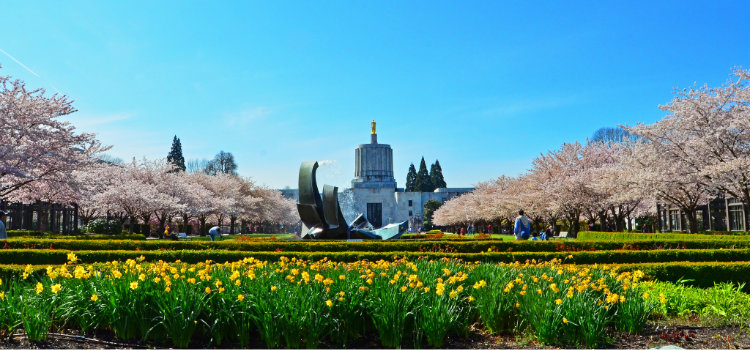Legislators in Oregon have reached a tentative agreement on a deal that would result in a 20% sales tax on recreational marijuana. 17% of the tax revenues would go to the state, while the other 3% would go to localities.
The deal was made with the hopes that it will end the disagreement between cities and counties regarding how much power each has to limit sales of recreational and medical marijuana. The hope is that the issue of local control will be able to be set aside by legislators and instead be decided in the courts or by a legislative work group in the future.
Currently, a legal case in Cave Junction is deciding whether local governments can ban medical marijuana dispensaries in their jurisdiction.
The Senate has passed a measure allowing localities to prohibit dispensaries while at the same time allowing voters to overturn such bans.
Sen. Ginny Burdick (D.-Portland), co-chair of the Legislature’s marijuana panel, expressed a positive view of the tax deal: “We are reaching conclusions on this and I’m very encouraged by the progress we have made.”
Scott Winkels, the chief lobbyist for the League of Oregon Cities, was not as enthusiastic, noting that a mere 3% tax revenue for localities was not ideal, but went on to say that “getting the tax on the books, we view that as a victory.”
The 3% tax would be levied in addition to a state sales tax that has been moving forward in the legislature, and would replace the marijuana harvest tax included in the November Measure 91 initiative.
Source:
http://www.oregonlive.com/mapes/index.ssf/2015/06/the_oregon_legislatures_big_ma.html
Photo Credit: Edmund Garman
